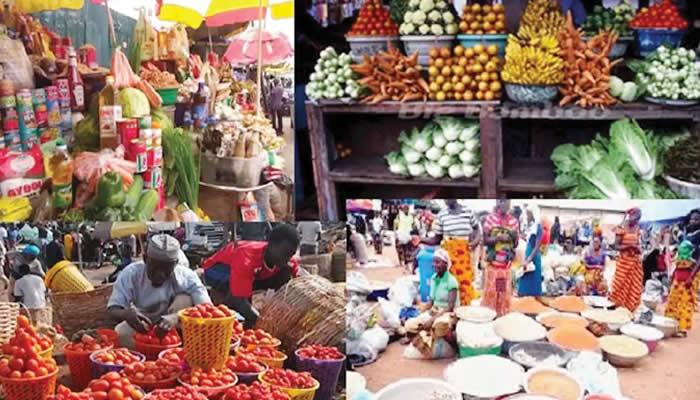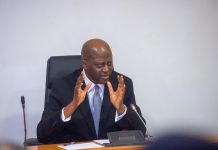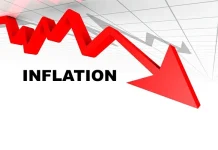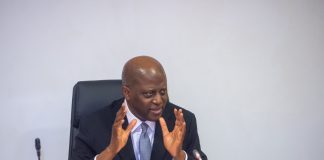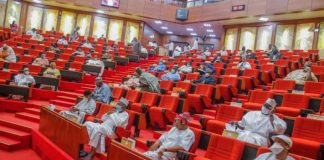🌿 Ruzu Non-Alcoholic Herbal Bitters
Ruzu Non-Alcoholic Herbal Bitters is a natural health supplement specially formulated to:
- ✅ Promote general wellness
- ✅ Detoxify the body
- ✅ Support the treatment of various ailments
Made from a powerful blend of 100% organic and medicinal herbs, Ruzu is completely alcohol-free, making it ideal for:
- 👪 All age groups
- 🌱 Health-conscious individuals
- 🌿 Anyone seeking non-alcoholic herbal remedies
Whether you're looking to boost your vitality, cleanse your system, or support healing the natural way, Ruzu Bitters offers a trusted herbal solution.
Although official statistics depict Nigeria’s economy as having recovered, the actual situation on the ground is more dire. ISAAC ASABOR discusses in this essay the growing disparity between official growth claims and the exorbitant expense of living that ordinary Nigerians must contend with. With its expert analysis, grassroots perspectives, and critical examination of the World Bank’s support for reforms, the piece exposes the inconsistency between economic theory and real-world experiences in Nigerian homes and marketplaces.
The average Nigerian is still struggling with the growing costs of products and services in all markets, despite optimistic official statements praising economic development and stability.
The significance of economic progress that does not convert into affordability or relief is being questioned by Nigerians in what seems to be a tale of two economies—one measured in statistics and boardroom data, and the other lived in the trenches of everyday living.
It is convenient to start by stating that, in light of the aforementioned, Nigeria’s economy expanded by 3.13% in the first quarter of 2025, according to the National Bureau of Statistics (NBS).
At first glance, this seems promising, particularly following years of poor performance, currency devaluation, and macroeconomic unrest.
In their everyday lives, however, the majority of Nigerians would tell you that the alleged rise is not noticeable.
It’s interesting to note that the World Bank has praised the Nigerian government for implementing challenging economic reforms that are starting to produce macroeconomic gains.
The organization stated that “Nigeria’s reforms have helped restore macroeconomic stability, boost investor confidence, and improve public revenues” in its June 2025 Nigeria Development Update (NDU).
The former World Bank Country Director for Nigeria, Shubham Chaudhuri, stated that the Tinubu administration should be commended for bringing forward long-overdue reforms that could create the groundwork for more robust and equitable growth. The impoverished and weak must now be shielded from the direct effects of those measures.
“High inflation, rising unemployment, and increasing poverty remain significant risks,” the World Bank said, while applauding the measures to unify the currency rate, remove fuel subsidies, and curb budgetary leakages.
Although the inflation rate may be declining, prices are not. To address persistent inflation, for example, the Central Bank of Nigeria (CBN) kept its monetary policy rate at 27.5% in July 2025.
The headline inflation rate is still among the highest in sub-Saharan Africa, however it decreased somewhat from 23.71% in April to 22.22% in June 2025.
Food inflation is more concerning because it has stayed significantly higher than 30% in many areas.
A 50kg bag of rice currently costs between N75,000 and N99,000, up from N35,000 in 2023, according to a Lagos market survey.
The price of a loaf of bread has increased from N600 in 2023 to N1,200 or N1,300, depending on the market region and brand. Furthermore, in less than a year, the prices of meat, poultry, vegetables, and cooking oil have increased by 70–100%.
A vendor in Mile 12 Market named Mrs. Iyabo Adeoye stated, “The inflation figures don’t reflect market realities.” Every few months, prices double, making it impossible for buyers to purchase. Some people now purchase food in teaspoons.
Costs of transportation have also increased after gasoline subsidies were eliminated in 2023. Fuel used to cost N195 per liter before deregulation, but now it costs between N900 and N1,000.
Food expenditures have increased by up to 200%, particularly in cities that rely on food being brought from far-off rural areas.
While costs are rising, wages are essentially staying the same. A new minimum salary of N70,000 was recently announced by the federal government, however implementation is still uneven, with many private and state enterprises not adhering.
A security guard at Ogba in Lagos named Uche Chukwuma stated, “I still make N45,000 a month, and I have three kids to feed.” When transportation alone costs N20,000 a month, how do I make ends meet? I now forgo meals in order to survive.
Read Also: Despite Paying Over N50 Million, Bandits Kill 38 Hostages in Zamfara’s Banga Village
According to the Nigeria Labour Congress (NLC), most Nigerian workers are still unable to cover their basic necessities despite the new minimum wage, and unless inflation is addressed thoroughly, the amount would become insufficient once more in the coming months.
According to a recent SBM Intelligence analysis, since mid-2023, the cost of providing three square meals per day to a household of five has more than doubled.
According to them, Nigerians are dealing with more than simply inflation right now. It’s a serious challenge of affordability.
The discrepancy between the macroeconomic performance and the microeconomic hardships of the populace has been repeatedly noted by economic specialists.
In the words of Dr. Muda Yusuf, the former Director-General of the Lagos Chamber of Commerce and Industry (LCCI), “We are expanding the economy without affecting the people.”
Telecoms, banking, oil, and gas are among the industries driving growth that don’t provide riches or mass employment. Power, instability, and logistical costs continue to be problems for industries that affect the general public, such as manufacturing, agriculture, and SMEs.
In the same vein, former CBN chief and Anambra State governor Professor Chukwuma Soludo issued the following warning during a recent policy roundtable:
Nigeria’s economy will not be saved by any amount of fiscal or monetary tinkering unless structural changes are coupled with comprehensive human development measures. If people cannot afford healthcare, food, transportation, and rent, then GDP growth is a paper tiger.
According to information acquired from the ground up at Lagos’ Oyingbo Market, traders, purchasers, and transporters are all equally frustrated.

